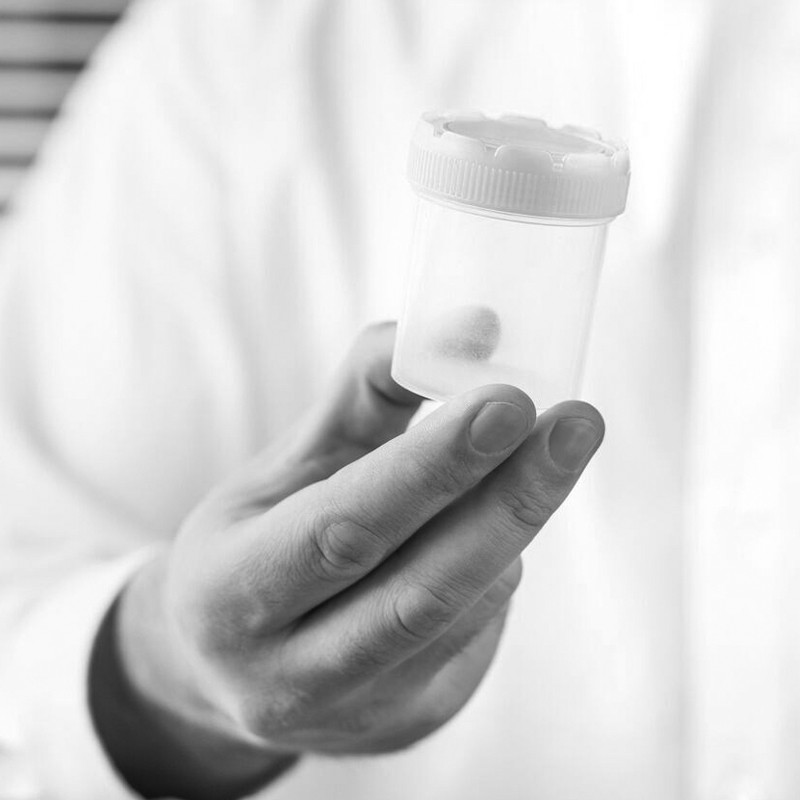I Spent £300 Pounds On A Stool Test
I’d never been one for non-conventional treatments, but after a long bout of ill health, which countless doctors and specialists had failed to solve, I became obsessed with trying to work out what was wrong with me. I would spend my nights riffling through forums, websites – anything I believed would bring me closer to the answer. My every thought was consumed by trying to figure out what was causing my symptoms.
Traditionally, western doctors only approach the symptoms of disease, treating them with appropriate drugs. However, in many cases of chronic illnesses, this only masks the problem and fails to address the actual cause (which is why once you stop taking the medicine, the condition often returns). I had briefly heard about stool tests and how they had helped others solve curious afflictions they had been suffering from, so after some debate I decided I would try one.
What is a stool test?
Based on a functional medicine approach, a comprehensive stool analysis test looks at the microbiology in your gut, and indicates where there are imbalances or even absences of particular bacteria. It also looks at inflammation, infection and digestion.
They’ve been available via the NHS for years, but only in cases where they deem it necessary (e.g. if you’re seriously ill). To access it privately you first need to find a qualified practitioner who understands the tests and how to interpret them.
As registered nutritional therapist, Anna Winek, explains: “The biomarkers from stool tests provide key clinical information for three main gastrointestinal functional areas:
1. Digestion/absorption: How well you break your food down into fibre and protein, and how well you’re digesting and absorbing fats.
2. Inflammation/Immunology: The level your immune system is functioning at.
3. Gut microbiome: The levels of good bacteria in your gut. This also Determines if you have any infections of bacteria, yeast or parasites.
When all of this information is collated together, a health practitioner can begin to paint a picture of what’s causing your symptoms and can treat them accordingly. “Stools contain bacteria and other substances that are present in the digestive system,” explains Winek. “By testing the levels of these substances and bacteria, it's possible to work out what's happening in your digestive system, which can help diagnose inflammatory bowel disease (Crohn's disease and ulcerative colitis), gastroenteritis and other conditions.”
How do I know if I need one and which one should I go for?
“Choosing digestive tests can be difficult, especially when the symptoms seem to be coming from everywhere in your body,” says Winek. “The first thing to consider is if the symptoms suggest an acute infection, such as parasites or food poisoning. If this is the case, then testing to identify the organism is best. This usually involves a stool test. If your symptoms are chronic or more vague, then it is advised to look into the root causes (there are often many). Dysbiosis, malabsorption, nutrient depletion, and GI dysfunctions such as gas, bloating, indigestion, abdominal pain, diarrhoea, and constipation can all play a part.
“Based on your symptoms and medical history taken during the consultation, your practitioner will assess your needs and choose the right diagnostic test. Functional tests are more in-depth than standard digestive tests. One of the big differences is that some labs offer one-day tests while others offer three-day tests. The benefit to three days’ worth of samples is that there’s a greater chance of identifying elusive GI organisms.”
I went for one of the most reputable, and Winke’s test of choice – the Comprehensive Profile from Genova Diagnostics, a special clinical laboratory based in Sweden.
What did the test entail?
As the name suggests, it was one of my least glamorous moments. And as if navigating your own poo into dangerously small test tubes isn’t awkward enough, you’re then required to store your stools in your fridge.
Once you’ve made it this far, a courier will come collect your poo parcel from your door within one to three days. Then it’s five days to three weeks for the results.
The results…
Finally, the big reveal. My results showed I had barely any microbiome diversity (the more variations of bacteria in your gut the better it can function and the stronger your immune system is), I was suffering from inflammation, had low beneficial bacteria including zero lactobacillus and a high presence of the bad bacterial E coli.
Prior to the onset of all my health issues I had two operations which resulted in months of strong antibiotics, and Winke suggested these had wiped out nearly all of the good bacteria in my gut, leaving me susceptible to infection and illnesses and generally weakening my immune system.
From there, she gave me a comprehensive nutrition and supplement plan and instructed me to follow it for as long as possible; ideally a minimum of six months. This included eating antimicrobials like berberine and garlic, to help rid my body of bad bacteria; an increase in green leafy vegetables; incorporating foods rich in probiotics; and – the hardest part – cutting out all sugar, dairy and alcohol. Being someone who has a sweet tooth, I knew I would struggle, but it was ditching the booze that turned out to be the toughest aspect to stick to.
After a month of strictly following the plan, I noticed a definite improvement in my symptoms – I was sleeping better, I had more energy, and this was the longest I’d gone without a migraine or sinus infection in years. I also noticed a reduction in my anxiety, something I hadn’t been expecting.
While I didn’t continue the diet for the recommended six months, I carried on monitoring my sugar intake and even today I am much more mindful of it – which has served me in good stead health-wise since.
How much does it cost?
A pricey £355 (and this was my money, not a review). However, as someone who has suffered from extreme exhaustion, debilitating migraines and chronic untreatable sinus infections, it was worth every penny.
Unfortunately for me, it didn’t answer all the questions I had surrounding my condition, but it did give me some insight as to what was really going on, and greatly improved my overall wellbeing. So, on that basis, I’d suggest you give it a go.
To book an appointment with Anna Winek, visit NutritionalTherapist.eu or email info@nutritionaltherapist.eu
DISCLAIMER: We endeavour to always credit the correct original source of every image we use. If you think a credit may be incorrect, please contact us at info@sheerluxe.com.






